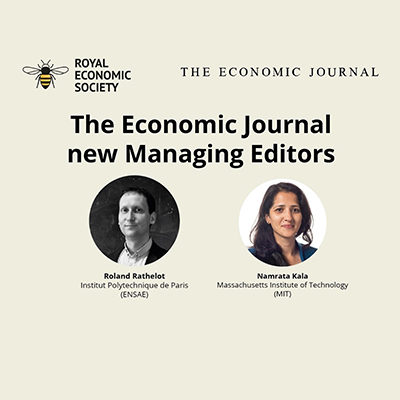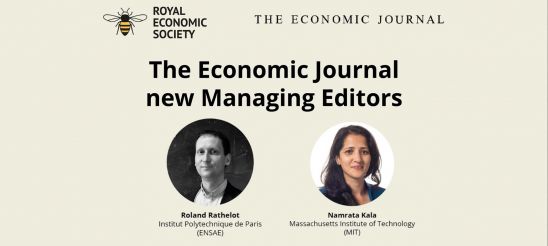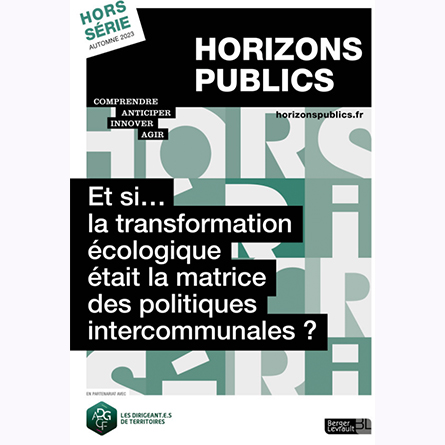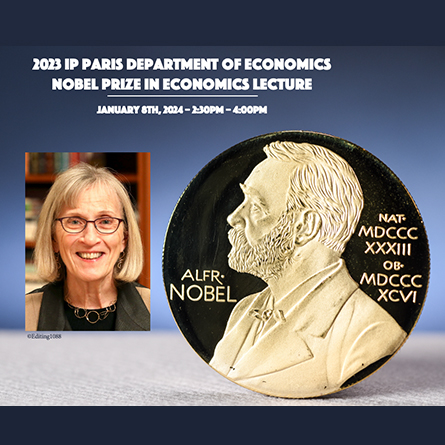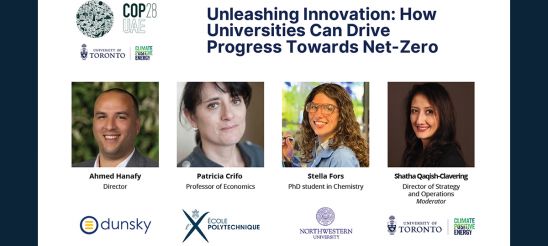Roland Rathelot and Namrata Kala are appointed Managing Editors of The Economic Journal from January 2024.
Roland Rathelot and Namrata Kala appointed Managing Editors of The Economic Journal
Roland Rathelot and Namrata Kala are appointed Managing Editors of The Economic Journal from January 2024.
Les ressorts sociaux de la bifurcation écologique des Français
Une contribution d’Ivaylo Petev pour le numéro spécial d’Automne 2023 de la revue Horizons Publics.
Les ressorts sociaux de la bifurcation écologique des Français
Une contribution d’Ivaylo Petev pour le numéro spécial d’Automne 2023 de la revue Horizons Publics.
2023 Economics Nobel Prize Lecture from researchers and PhDs of the Department of Economics of IP Paris
The department of Economics of IP Paris is honored to invite you to the Nobel prize in economics lecture, open to all, on the 8th of January 2024 from 2:30pm to 4:00pm to present the contributions of this year’s recipient Claudia Goldin “for having advanced our understanding of women’s labour market outcomes”:

The lecture be given by Federica Meluzzi (PhD IPParis-CREST), Roland Rathelot (IPParis-CREST-ENSAE) and Sara Signorelli (IPParis-CREST-X).
It will be accessible to a broad audience of researchers and students.
The lecture will be in a hybrid format from both Amphi 250 in the ENSAE building and online on Zoom.
Youtube link to the recording: https://youtu.be/4eDyP5go43k
2023 Economics Nobel Prize Lecture from researchers and PhDs of the Department of Economics of IP Paris
The department of Economics of IP Paris is honored to invite you to the Nobel prize in economics lecture, open to all, on the 8th of January 2024 from 2:30pm to 4:00pm to present the contributions of this year’s recipient Claudia Goldin “for having advanced our understanding of women’s labour market outcomes”:

The lecture be given by Federica Meluzzi (PhD IPParis-CREST), Roland Rathelot (IPParis-CREST-ENSAE) and Sara Signorelli (IPParis-CREST-X).
It will be accessible to a broad audience of researchers and students.
The lecture will be in a hybrid format from both Amphi 250 in the ENSAE building and online on Zoom.
Youtube link to the recording: https://youtu.be/4eDyP5go43k
Patricia Crifo guest at COP 28 UAE
Patricia Crifo will be taking part in COP 28 UAE, the UN’s 28th Conference of the Parties on Climate, to be held from November 30 to December 12, 2023 in Dubai, United Arab Emirates.
Patricia Crifo guest at COP 28 UAE
Patricia Crifo will be taking part in COP 28 UAE, the UN’s 28th Conference of the Parties on Climate, to be held from November 30 to December 12, 2023 in Dubai, United Arab Emirates.
Open applications for 2024 PhD tracks in Economics
Applications are open from October 5th to January 12th, 2024, for the PhD track in Economics.
PhD track program
The PhD track is a five-year program which offers training in top-level research to high-potential students aiming for an international career in leading academic institutions or companies.
For the first two years, candidates will be enrolled in a coursework program for which they would be awarded the master’s degree. Then, for the three remaining years, students will be enrolled in a dissertation phase for a PhD diploma.
PhD track in Economics
Description
The program heavily relies on advanced quantitative methods for both theoretical and empirical analysis. During the first year, students take advanced core courses in microeconomics, macroeconomics, and econometrics. They also engage in research projects under the supervision of faculty and acquire a first hands-on contact with research. During the second year, students will follow advanced methodological courses, and specialize in subfields of economics. They will regularly spend time within the research centers (office space and IT facilities will be provided at CREST, students may also can work closely with faculty members as research assistants) and will be allocated an individual advisor among the program faculty. They will also regularly attend CREST research seminars, conduct a research project, and write a master’s dissertation under the supervision of a faculty member.
At the end of the second year, students who have achieved sufficiently good grades, have written a research proposal and found a potential PhD supervisor within CREST may progress to the dissertation period (three years) of the PhD program. Progress is conditional on securing funding and IP Paris and CREST will do their best to help candidates to obtain such funding (e.g., IP Paris but also Ecole polytechnique and ENSAE Paris provide a limited number of three-year doctoral fellowships).
Fields of excellence at our CREST research center (and HEC Paris research group), and potential areas of specialization, include:
- Econometric theory
- Environmental and development economics
- Game and decision theory
- Industrial organization and digital economics
- International economics
- Labor economics
- Macroeconomics
- Public economics
Objectives
Provide an advanced training in economics at the highest international level with a strong emphasis on advanced quantitative methods for both theoretical and empirical analyses.
Acquire the most important tools in microeconomics, macroeconomics, and econometrics through a complete core course training.
Specialize by selecting field and specialization courses in a variety of sub-areas of economics.
Conduct research in a stimulating environment
More information on the PhD track in Economics: https://www.ip-paris.fr/en/education/phd-track/phd-track-economics
More information on PhD tracks at IP Paris: https://www.ip-paris.fr/en/education/phd-track-applications-open-october-5th-january-12th-2024
Application portal: https://candidatures.polytechnique.fr/candidatures/logincandidature/index.php?cursus=MI
From Lab Desks to Bookshelves: ‘Machine Learning pour l’Économétrie’ Authored by Lab Alumni
We are pleased to announce the publication by Editions Economica (ENSAE Collection, Advanced Economics and Statistics) of Machine Learning for Econometrics by Christophe Gaillac and Jeremy L’hour.
Two PhD alumni from CREST
Christophe Gaillac is a Postdoctoral Prize Research Fellow in Economics at Nuffield College, University of Oxford and was previously a PhD student at CREST. His research focuses on Econometrics, Statistics, and Machine Learning. Christophe is also an alumni from École polytechnique and ENSAE Paris where he was, later, the coordinator of statistical and mathematical teachings from 2017 to 2019 at ENSAE Paris.

Jeremy L’hour works on econometric methods and applications of machine learning to causal inference. He currently works as a quantitative researcher in the statistical arbitrage alpha team at Capital Fund Management (CFM) and he holds a PhD in Economics from Université Paris-Saclay prepared at CREST-ENSAE. Jeremy is an alumni of ENSAE Paris and he was the coordinator for econometrics teachings between 2016 and 2019.
Machine Learning For Econometrics
“Machine Learning pour l’économétrie” is a work intended for economists who wish to grasp modern machine learning techniques – from their predictive performance to the revolutionary processing of unstructured data – in order to establish causality relationships from the data.
It addresses the automatic selection of variables in various high-dimensional contexts, the estimation of treatment effects heterogeneity, natural language processing (NLP) techniques, as well as synthetic control and macroeconomic forecasting.
The foundations of machine learning methods are introduced to provide both a thorough theoretical treatment of how they can be used in econometrics and numerous economic applications. Each chapter contains a series of empirical examples, programs, and exercises to facilitate the adoption and implementation of techniques by the reader.
This book is aimed at master’s or graduate students, researchers, and practitioners eager to understand and enhance their knowledge of machine learning to apply it in a context traditionally reserved for econometrics.

